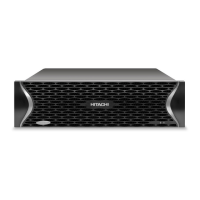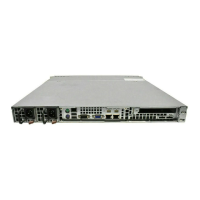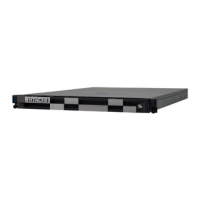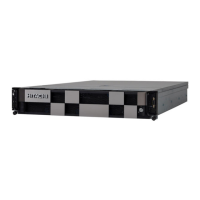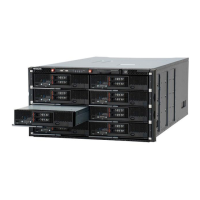($LETALL)can also be used with the raidscan -find and mkconf
commands.
D:\HORCM\etc>inqraid $LETALL -CLI
DEVICE_FILE PORT SERIAL LDEV CTG H/M/12 SSID R:Group
PRODUCT_ID
D:\Vol2\Dsk7 - - - - - - -
DDRS-34560D
D:\hd1\Vol8\Dsk0 CL2-F 61459 448 - s/s/ss 0005 1:01-01
OPEN-3
D:\hd2\Vol9\Dsk1 CL2-F 61459 449 - s/s/ss 0005 1:01-01
OPEN-3
G:\Dms1\Dsk2 CL2-K 61456 256 - s/s/ss 0005 1:01-11
OPEN-3
G:\Dms1\Dsk3 CL2-K 61456 257 - s/s/ss 0005 1:01-11
OPEN-3
G:\Dms1\Dsk4 CL2-K 61456 258 - s/s/ss 0005 1:01-11
OPEN-3
Subcommand for directory mounted volume: CCI supports the directory
mount with the -x mount,-x unmount,-x sync option so that the directory
mount can be used to mount/unmount the S-VOL.
Mount and Sync used Volume{GUID} for Windows: CCI supports the
mountcommand option specified in the device object name, such as \Device
\Harddiskvolume X. Windows changes the device number for the device
object name after recovering from a failure of the PhysicalDrive. As a result,
the mountcommand specified in the device object name might fail. Therefore,
CCI supports a mountcommand option that specifies a Volume{GUID} as well
as the device object name.
• Mount
¢
The mountcommand option specifies a Volume{GUID} as well as the
device object name.
¢
If a Volume{GUID} is specified, then it is executed by converting a
Volume{GUID} to a device object name.
¢
Discover the Volume{GUID}s by using inqraid $Volu -fv command
option.
Examples:
C:\HORCM\etc>inqraid -CLI $Vol -fv
DEVICE_FILE PORT SERIAL LDEV
CTG H/M/12 SSID R:Group PRODUCT_ID
Volume{cec25efe-d3b8-11d4-aead-00c00d003b1e}\Vol3\Dsk0 CL2-D
62496 256 - - - - OPEN-3-CVS-CM
[ Mount used DefineDosDevice() ]
Note:
This might forcibly dismount the mounted volume due to LOG-OFF of
Windows. For example:
C:\HORCM\etc>raidscan -x mount E: Volume{cec25efe-d3b8-11d4-
aead-00c00d003b1e}
E: <+> HarddiskVolume3
[ Mount used Directory mount ]
Examples of using CCI commands
8-13
Command Control Interface User and Reference Guide
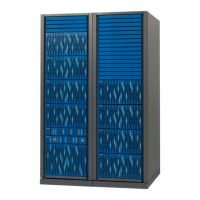
